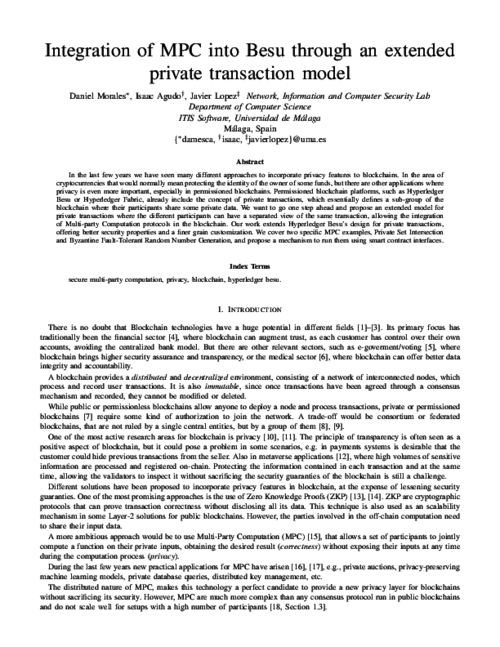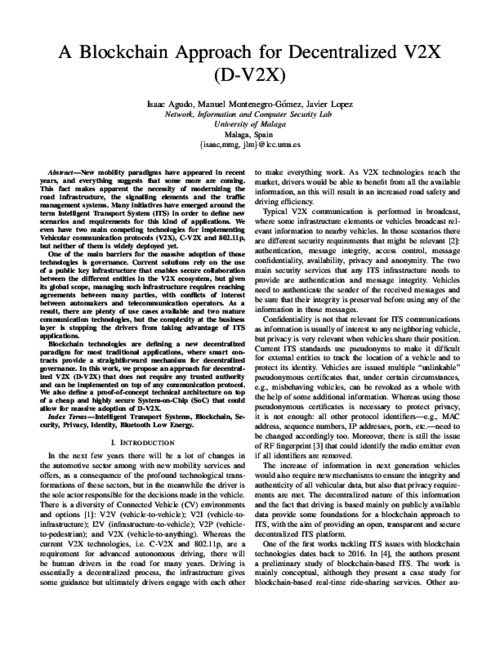 ]
] IEEE International Conference on Metaverse Computing, Networking and Applications, 06/2023.
Abstract
In the last few years we have seen many different approaches to incorporate privacy features to blockchains. In the area of cryptocurrencies that would normally mean protecting the identity of the owner of some funds, but there are other applications where privacy is even more important, especially in permissioned blockchains.
Permissioned blockchain platforms, such as Hyperledger Besu or Hyperledger Fabric, already include the concept of private transactions, which essentially defines a sub-group of the blockchain where their participants share some private data.
We want to go one step ahead and propose an extended model for private transactions where the different participants can have a separated view of the same transaction, allowing the integration of Multi-party Computation protocols in the blockchain.
Our work extends Hyperledger Besu's design for private transactions, offering better security properties and a finer grain customization. We cover two specific MPC examples, Private Set Intersection and Byzantine Fault-Tolerant Random Number Generation, and propose a mechanism to run them using smart contract interfaces.

IEEE Transactions on Vehicular Technology, vol. 70, no. 5, IEEE, pp. 4001 - 4010, 05/2021. DOI
Abstract
New mobility paradigms have appeared in recent years, and everything suggests that some more are coming. This fact makes apparent the necessity of modernizing the road infrastructure, the signalling elements and the traffic management systems. Many initiatives have emerged around the term Intelligent Transport System (ITS) in order to define new scenarios and requirements for this kind of applications. We even have two main competing technologies for implementing Vehicular communication protocols (V2X), C-V2X and 802.11p, but neither of them is widely deployed yet.
One of the main barriers for the massive adoption of those technologies is governance. Current solutions rely on the use of a public key infrastructure that enables secure collaboration between the different entities in the V2X ecosystem, but given its global scope, managing such infrastructure requires reaching agreements between many parties, with conflicts of interest between automakers and telecommunication operators. As a result, there are plenty of use cases available and two mature communication technologies, but the complexity at the business layer is stopping the drivers from taking advantage of ITS applications.
Blockchain technologies are defining a new decentralized paradigm for most traditional applications, where smart contracts provide a straightforward mechanism for decentralized governance. In this work, we propose an approach for decentralized V2X (D-V2X) that does not require any trusted authority and can be implemented on top of any communication protocol. We also define a proof-of-concept technical architecture on top of a cheap and highly secure System-on-Chip (SoC) that could allow for massive adoption of D-V2X.
